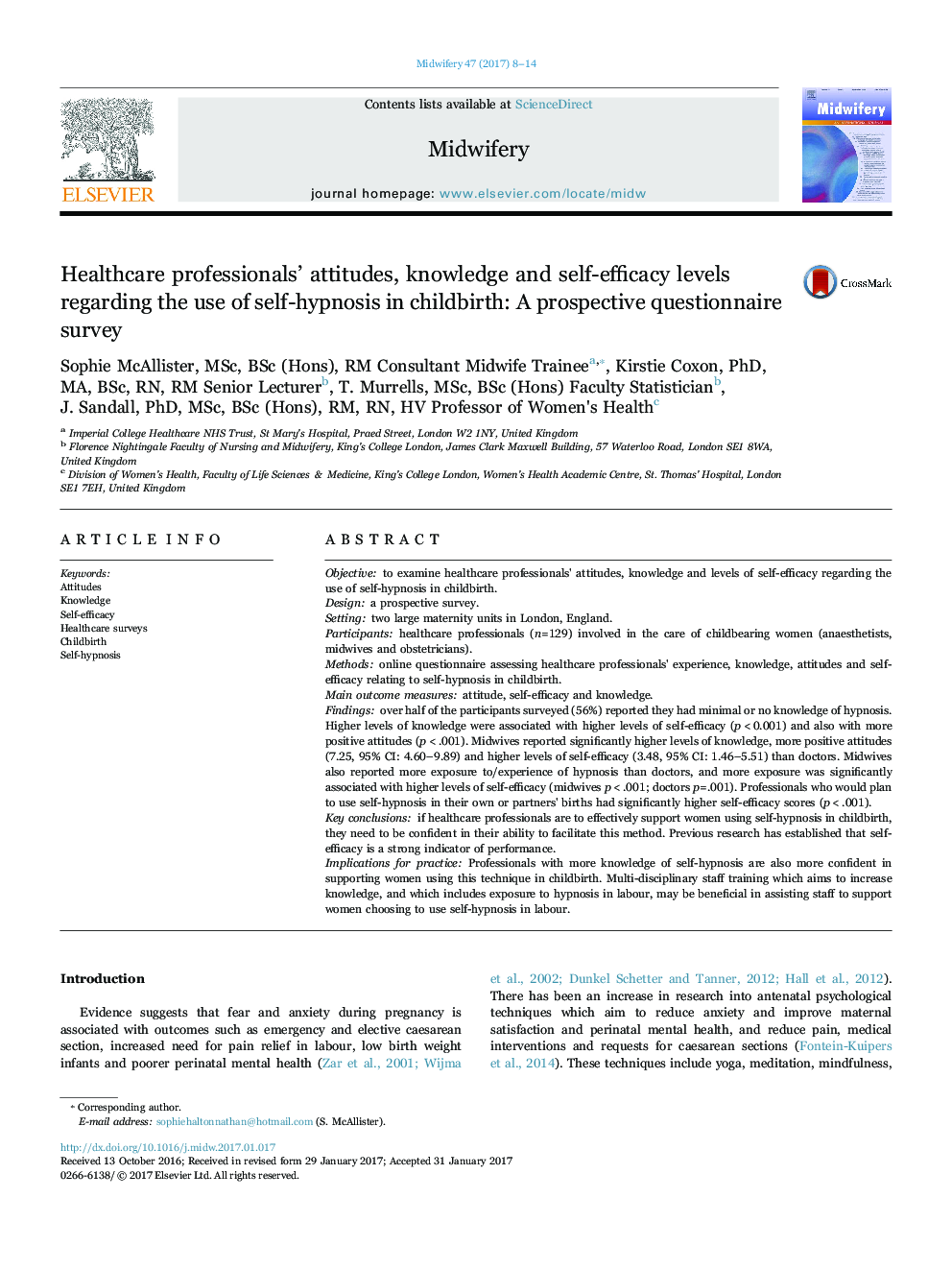| کد مقاله | کد نشریه | سال انتشار | مقاله انگلیسی | نسخه تمام متن |
|---|---|---|---|---|
| 5122329 | 1487137 | 2017 | 7 صفحه PDF | دانلود رایگان |
- 56% of respondents reported minimal or no knowledge of self-hypnosis in childbirth.
- Knowledge is linked with greater confidence in supporting women using self-hypnosis.
- Midwives reported more knowledge, confidence & a more positive attitude than doctors.
- Self-efficacy was greater if staff would use self-hypnosis in their own labour.
Objectiveto examine healthcare professionals' attitudes, knowledge and levels of self-efficacy regarding the use of self-hypnosis in childbirth.Designa prospective survey.Settingtwo large maternity units in London, England.Participantshealthcare professionals (n=129) involved in the care of childbearing women (anaesthetists, midwives and obstetricians).Methodsonline questionnaire assessing healthcare professionals' experience, knowledge, attitudes and self-efficacy relating to self-hypnosis in childbirth.Main outcome measuresattitude, self-efficacy and knowledge.Findingsover half of the participants surveyed (56%) reported they had minimal or no knowledge of hypnosis. Higher levels of knowledge were associated with higher levels of self-efficacy (p<0.001) and also with more positive attitudes (p<.001). Midwives reported significantly higher levels of knowledge, more positive attitudes (7.25, 95% CI: 4.60-9.89) and higher levels of self-efficacy (3.48, 95% CI: 1.46-5.51) than doctors. Midwives also reported more exposure to/experience of hypnosis than doctors, and more exposure was significantly associated with higher levels of self-efficacy (midwives p<.001; doctors p=.001). Professionals who would plan to use self-hypnosis in their own or partners' births had significantly higher self-efficacy scores (p<.001).Key conclusionsif healthcare professionals are to effectively support women using self-hypnosis in childbirth, they need to be confident in their ability to facilitate this method. Previous research has established that self-efficacy is a strong indicator of performance.Implications for practiceProfessionals with more knowledge of self-hypnosis are also more confident in supporting women using this technique in childbirth. Multi-disciplinary staff training which aims to increase knowledge, and which includes exposure to hypnosis in labour, may be beneficial in assisting staff to support women choosing to use self-hypnosis in labour.
Journal: Midwifery - Volume 47, April 2017, Pages 8-14
